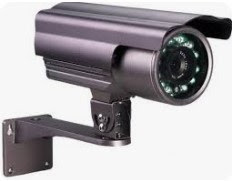Installing an IP CCTV camera using a Power over Ethernet (PoE) switch involves several steps. PoE simplifies the installation process by allowing both data and power to be transmitted over a single Ethernet cable. Here's a general guide to help you with the process:
Materials Needed:
1. IP CCTV camera(s)
2. PoE switch
3. Ethernet cables (Cat5e or Cat6)
4. NVR (Network Video Recorder) or a
computer with video recording software
5. Power source for the PoE switch
6. Mounting hardware for the cameras
(if not built-in)
Step 1: Planning
Ø
Decide on the camera
locations and ensure they have a clear line of sight for surveillance.
Ø Plan the cable
routes, making sure to measure and cut the Ethernet cables accordingly.
Step 2: Mounting the Cameras
Ø
Mount the cameras securely
using appropriate hardware.
Ø Adjust the
camera angles for optimal viewing.
Step 3: Connecting Cameras to PoE Switch
Ø Connect one end
of the Ethernet cable to the PoE port on the camera.
Ø Connect the
other end of the Ethernet cable to an available PoE port on the PoE switch.
Step 4: Connecting PoE Switch to NVR or Computer
Connect another Ethernet cable from a non-PoE
port on the switch to an available port on the NVR or directly to your computer
if you're using it for recording.
Step 5: Powering the PoE Switch
Connect the PoE
switch to a power source. Some PoE switches can be powered over Ethernet, while
others may require a separate power supply.
Step 6: Configuring the NVR or Recording Software
Ø
Access the NVR or computer
where the video will be recorded.
Ø Configure the
recording settings, such as motion detection, recording schedules, and storage
locations.
Step 7: Testing
Ø
Power on the cameras and
ensure they are connected to the PoE switch.
Ø Access the
camera feeds through the NVR or computer to verify proper installation and
camera functionality.
Step 8: Finalizing Installation
Ø
Securely fasten and
organize the cables to prevent damage and ensure a clean appearance.
Ø Make any
necessary adjustments to the camera angles or settings.
Tips:
Ø Ensure the PoE
switch has enough ports for all your cameras.
Ø Use weatherproof
connectors and enclosures for outdoor installations.
Ø Test the system
thoroughly to identify and resolve any issues before relying on it for
security.
Remember that specific details might vary
depending on the brand and model of your equipment, so it's essential to refer
to the user manuals provided by the manufacturers.









0 Comments